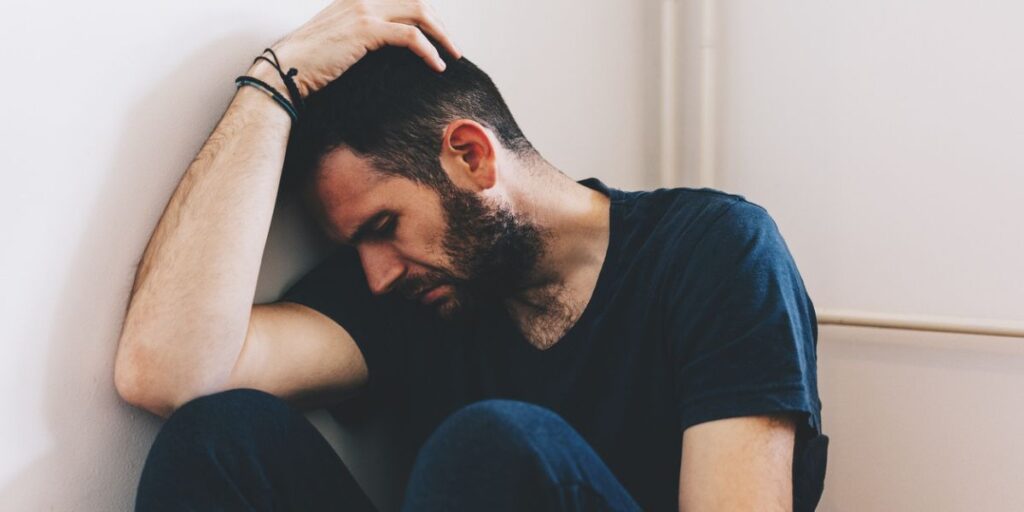Benzodiazepine Addiction Treatment

Breaking Free From the Benzodiazepine Loop
You didn’t plan on getting stuck in a loop. Benzodiazepines, whether it’s Xanax, Ativan, or Valium, are often prescribed to help quiet the mind, ease anxiety, or help you sleep. But over time, what started as a tool for calm can turn into a cycle that’s hard to break. If you’re here reading this, chances are you, or someone you love, knows that frustrating cycle all too well.
The good news? You’re not alone, and more importantly, you’re not out of options. There are paths forward, from specialized benzodiazepine addiction treatment centers to trusted drug treatment facilities in California that understand the complexities of benzo dependency. Let’s walk through what benzo addiction looks like, why it’s so difficult to quit, and how targeted treatment at White Oak Recovery Center can help you reclaim control.
Understanding Benzodiazepine Addiction: It’s Not Just About Willpower
When doctors prescribe benzodiazepines, which are typically meant for short-term relief, they are normally only given for a few weeks to manage acute anxiety or sleeplessness. But these medications have a sneaky way of rewiring how your brain responds to stress. Over time, your brain becomes reliant on the drug to manage even day-to-day worries. That’s not weakness. That’s biology.
As tolerance builds, the same dose no longer works, and people often find themselves taking more, just to feel functional. Soon, what was supposed to be a temporary aid becomes a daily crutch. This cycle is what makes addiction to benzodiazepines treatment so crucial, because it’s not just about “stopping.” It’s about retraining the brain and body in a safe, medically guided way.
Short-Acting Benzodiazepines
Short-acting benzodiazepines like Xanax (alprazolam) and Ativan (lorazepam) are commonly prescribed because they work fast. They’re often given for sudden panic attacks or acute anxiety episodes because they can bring noticeable relief within 30 minutes to an hour.
But here’s the catch. Because these medications leave the bloodstream quickly, the calming effects wear off just as fast. This leads to a rollercoaster effect where you might feel fine for a short while, but then experience a rebound of anxiety or restlessness once the drug fades. This up-and-down cycle increases the risk of frequent dosing and, ultimately, dependence.
In benzodiazepine addiction treatment centers, short-acting benzo dependence is often treated with a slow tapering process to ease the body off its chemical reliance. It’s not about quitting cold turkey. It’s about stabilizing your system in a way that feels manageable and safe.
Long-Acting Benzodiazepines
On the flip side, long-acting benzodiazepines like Valium (diazepam) and Klonopin (clonazepam) stay in your system much longer. They’re often prescribed for generalized anxiety, muscle spasms, or seizure disorders. Because they don’t wear off as quickly, many people assume they’re less risky. But the truth is, long-acting benzos can quietly build up in your system, leading to a slow-forming, deeply rooted dependence.
The tricky part? You might not notice how reliant your body has become until you try to stop. Symptoms of withdrawal can emerge even days after the last dose, catching people off guard. Treatment for long-acting benzo addiction often requires a steady, carefully monitored taper that might extend over weeks or months to minimize discomfort and risk.
That’s where a professional benzodiazepine addiction treatment center can make all the difference. Specialists there understand the nuances of different benzo types and create a personalized tapering plan that works with, not against, your body.
The Benzodiazepine Withdrawal Experience: It’s More Than Just Unpleasant
Benzodiazepine withdrawal isn’t something you want to navigate alone. Depending on how long and how much you’ve been using, withdrawal symptoms can range from irritating to downright dangerous. Mild symptoms might include anxiety, irritability, and sleep disturbances, while more severe withdrawal can lead to tremors, confusion, and in some cases, seizures.
What makes benzo withdrawal particularly challenging is the psychological rebound. Those same anxieties and panic episodes that the medication once masked can come back stronger if detox isn’t handled correctly. That’s why treatment for benzodiazepine addiction always starts with a medically supervised detox. It’s about managing withdrawal in a way that protects both your physical and emotional well-being.
Our drug rehabilitation in California offers specialized detox programs that not only focus on safely reducing the drug in your system but also introduce coping strategies early on, so you’re not left overwhelmed once withdrawal symptoms kick in.


Treatment Options: Personalized Care Matters
No two stories of benzo addiction are alike. That’s why a cookie-cutter approach doesn’t work when it comes to recovery. Whether you’re considering inpatient care, outpatient programs, or a hybrid of both, it’s important to choose a drug treatment facility in California that prioritizes individualized treatment plans.
At top benzodiazepine addiction treatment centers, you’ll find a combination of medical support, therapy, and holistic practices. Cognitive Behavioral Therapy (CBT), mindfulness exercises, and trauma-informed counseling are common tools that help address not just the addiction itself, but the root causes behind it. Facilities, whether a boutique Hollywood rehab or a more traditional clinic, offer structured environments where healing can begin in earnest.
Life After Benzo Addiction
Recovery doesn’t end when you finish detox or walk out of rehab. In many ways, that’s just the starting line. Learning how to manage anxiety, stress, and emotional challenges without turning to medication is a gradual process that continues long after formal treatment.
Alumni programs, sober living communities, and ongoing outpatient counseling can provide a safety net as you navigate life post-rehab. The goal isn’t perfection. It’s progress. Day by day, you’ll learn to rebuild routines, strengthen relationships, and discover new, healthier ways to handle life’s curveballs.
Your Recovery Story Starts Now!
Deciding to seek help for benzodiazepine addiction can feel overwhelming, but it’s also one of the bravest steps you can take. Whether you’re exploring addiction to benzodiazepines treatment, searching for a trusted benzodiazepine addiction treatment center, or looking into drug rehabilitation in California, know that support is within reach.
It’s not about shame or blame. It’s about giving yourself the tools to live freely again. If you’re ready to step off the benzo treadmill and into a life of clarity and calm, there’s an admissions team of people who are prepared to walk that path with you. You’ve got this.







